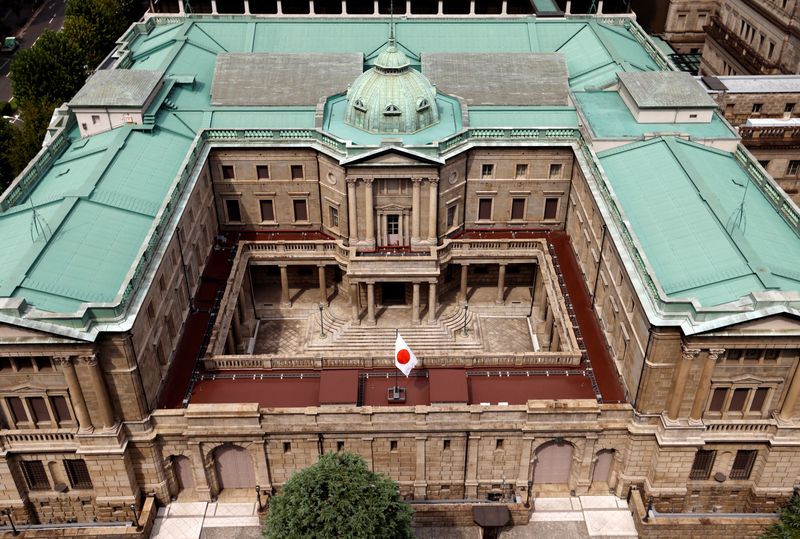By Satoshi Sugiyama
TOKYO (Reuters) - The Bank of Japan will end its negative interest rate policy next year, more than 80% of economists in a Reuters poll said, with more convinced the central bank is getting closer to exiting its controversial monetary settings.
BOJ Governor Kazuo Ueda faces the difficult task of navigating Japan away from the extremely accommodative policy of the past decade without causing market turmoil or squashing a fragile economic recovery.
While none of 26 economists predicted changes in the upcoming December BOJ meeting, many foresaw the negative rate policy, which has set Japan's short-term deposit rate at minus 0.1%, would reach the end of the line next year.
In the Nov. 15-20 poll, 22 of 26, or 85%, of economists said the BOJ would end the policy by the end of next year. That was up from 63% in an October poll and 52% in September.
The remaining four chose "2025 or later."
In an October policy meeting, the BOJ modified its bond yield control by redefining 1.0% as an "upper bound" with room for allowance, rather than a rigid cap.
Having watered down YCC, the BOJ's next focus is to end its negative interest rate policy and push short-term rates to zero, sources previously told Reuters.
Close to 85% of poll respondents forecast the BOJ would end its YCC policy, while the rest said it would tweak the scheme again, the poll found.
EYES ON NEXT YEAR
Of 22 economists in the poll who chose 2024 for the end of negative rates, more than a half, 12, opted for the April 25-26 meeting. Three picked July, two went for June and one opted for October.
Four - Capital Economics, Dai-ichi Life Research Institute, Mitsubishi UFJ (NYSE:MUFG) Morgan Stanley Securities and T&D Asset Management - said that would happen as early as January.
By then, it would become clear for the BOJ to decide the fate of short-term rates taking inflationary pressure and the trend of wage negotiations into consideration, said Hiroshi Namioka, chief strategist and fund manager at T&D Asset Management.
"The negative interest rate will be lifted as an 'inflation response' if inflation is sustained or as a 'continuation of easing' if inflationary pressures appear to be waning," as the BOJ could argue setting the short-term rates at 0.00% is considered loose, Namioka said.
WAGES, ECONOMIC MEASURES IN FOCUS
In the poll, 74% of economists said wage growth and base salary increases on average for next year would exceed this year's 3.58% at big Japanese firms. The percentage dipped to 65% when asked whether the same would happen for Japanese businesses in general, including small and mid-size firms.
Meanwhile, nearly two-thirds of economists, 16 of 25, said the chance the government's latest economic package achieves its projection of boosting the rate of GDP growth by 1.2% were "very unlikely."
More than half of respondents in multiple public opinion polls have said they were not impressed by the measures, which includes cutting annual income and other taxes by 40,000 yen ($267.34) per person and paying 70,000 yen to low-income households. The package's unpopularity is cited as one factor of Prime Minister Fumio Kishida's plummeting public support.
"One-off income tax cuts would have a very limited boost effect," said Chiyuki Takamatsu, chief economist at Fukoku Mutual Life Insurance.

(For other stories from the Reuters global long-term economic outlook polls package:)
($1 = 149.6200 yen)